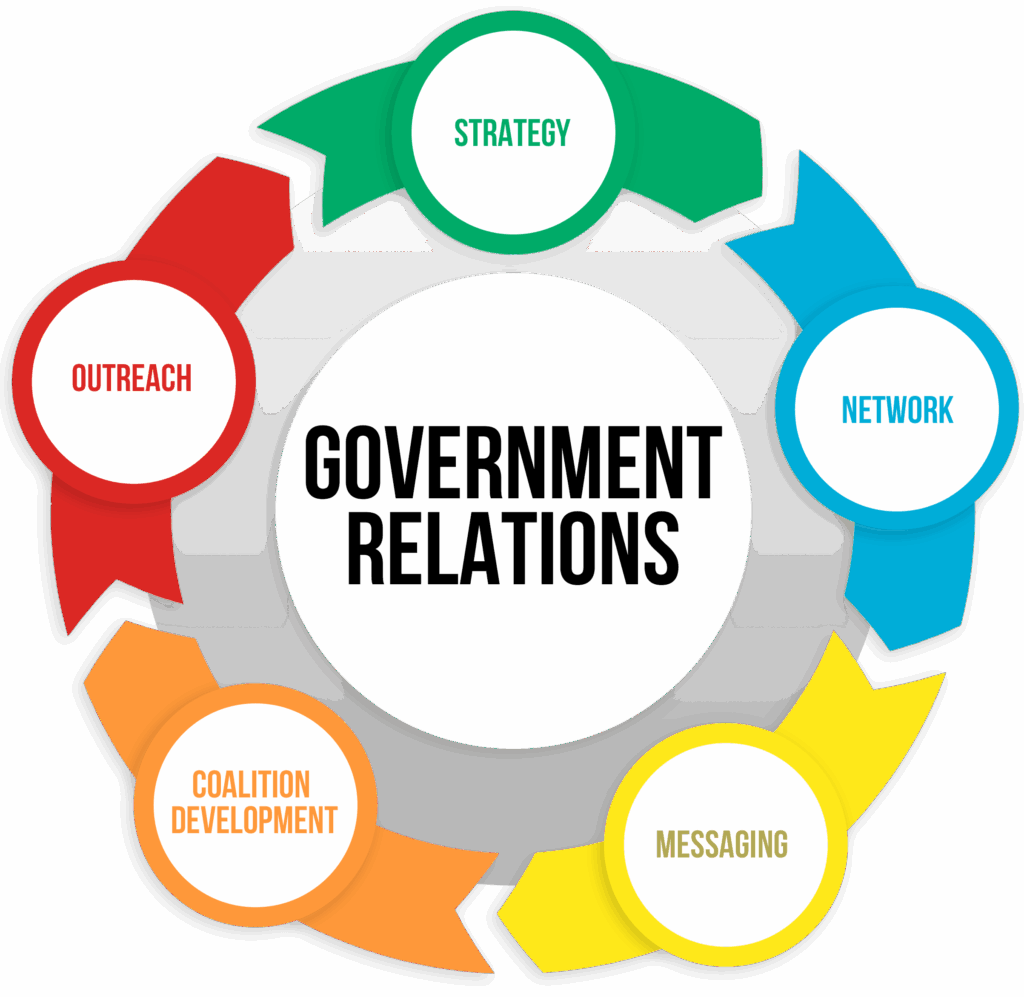Government entities shape the economic ecosystem through policies, regulations, infrastructure, and incentives. For a visionary entrepreneur or startup founder, government relations (GR) are more than compliance—they are strategic opportunities.
1. Access to Incentives and Grants
Whether you are launching a Recruitment Management System (RMS), running a women’s rights awareness campaign with White Ribbon Pakistan, or building digital platforms for public utility, aligning with government goals often opens the door to funding, public-private partnerships, and long-term sustainability.
📌 Explore: Government SME Grant Programs – World Bank

2. Regulatory Navigation
From starting a data center to setting up a children’s education platform like “Kid’s Mind,” government regulations define the boundaries within which we innovate. Proactive engagement with regulatory bodies such as Pakistan Telecommunication Authority (PTA) or Dubai DED ensures smoother operations and faster scalability.
3. Strategic Legitimacy
Government collaboration brings credibility to campaigns—be it a breast cancer self-examination awareness app or women empowerment initiatives with ECS. Legitimacy drives public trust and facilitates partnerships with other stakeholders.
📌 Learn more: UN Guide on Business and Human Rights
Campaign Strategy Backed by Policy Alignment
For entrepreneurs engaged in cause-based businesses or public service tech solutions, campaign success hinges on a clear understanding of government agendas.
Policy-Driven Messaging
Campaigns that align with national priorities (e.g., women empowerment, digital education, health awareness) resonate better with both officials and the public.
Stakeholder Mapping
Identify which ministries, departments, or regulatory bodies influence your field—education, IT, women’s rights, labor, or commerce. For example, aligning your RMS platform on career.abc.com with the Ministry of Federal Education and Professional Training ensures synergy with national employment goals.
Public-Private Partnerships (PPP)
Collaborating with the government can bring infrastructural and promotional support. For example, your tech development projects (e.g., data centers, health apps) may benefit from PPPs.
📌 Reference: Public-Private Partnerships in Pakistan – PPP Authority
Effective Practices for Building Government Relations
1. Start Early
Engage with officials not just when you need approvals, but during the ideation phase. Early dialogues help shape your project to align with national priorities.
Example: How Startups Can Partner With Governments – Harvard Business Review
2. Documentation and Transparency
Present your vision with solid documentation—business plans, social impact models, and case studies. This builds trust and simplifies advocacy.
3. Networking with Purpose
Attend government-backed expos, ICT forums, and development conferences like LEAP Tech Conference or GITEX. These platforms help promote visibility for platforms like Multishines, Kid’s Mind, and your data center ventures.
4. Advocacy Through Coalitions
Work with NGOs, civil societies, and advocacy networks like White Ribbon Pakistan to influence policy. Governments often respond to collective voices promoting ethical reforms and public welfare.
Case Reflections from Practice
In your entrepreneurial journey—ranging from IT infrastructure, web development, and RMS systems, to social campaign management and content for kids—you’ve crossed multiple intersections between business innovation and societal impact.
- Your Recruitment Management System (RMS) aligns with youth employment strategies in Pakistan.
- Your breast cancer awareness project supports WHO’s global health awareness goals.
- Your children’s ethics channel complements UNICEF’s educational missions.
Each of these projects represents how strategic business can uplift communities when aligned with national and global developmental frameworks.